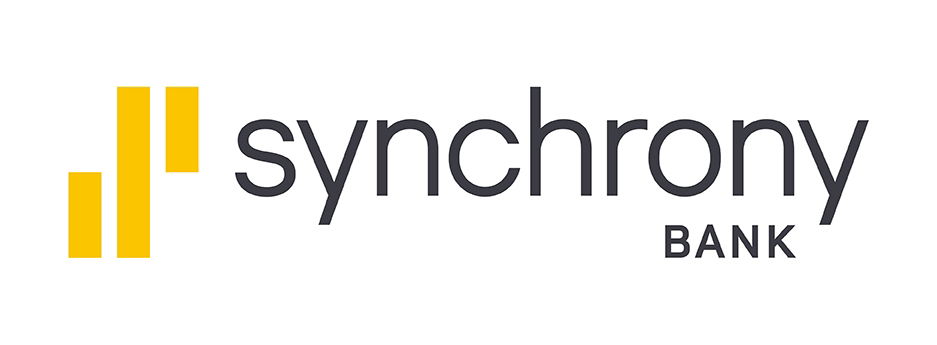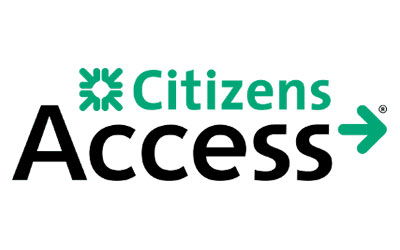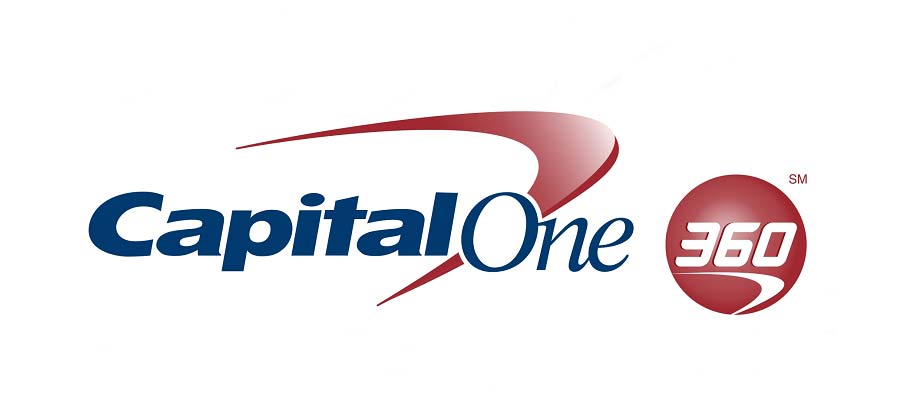Whether you’re setting aside money for a long-term goal or a short-term need, the right savings account can help you save in the best way possible.
Maybe you’re looking for a high interest rate or prefer help and incentives for meeting your goals. Or perhaps you want a low-maintenance account with zero fees.
Whatever individual services you need, there’s an account for you. We’ve searched high and low for the best savings accounts available in 2025. Read on to find the one that best fits your needs.
Best High-Yield Savings Accounts
When you need to keep your cash accessible but still want to earn as much interest as possible, a high-yield savings account is likely what you’re looking for.
While most banks only offer a fraction of a percentage point as interest, a few financial institutions are willing to pay more for the privilege of holding your account. Take a look at our top picks for the best high-yield savings accounts.
1. Upgrade
The Upgrade Premier Savings account is a strong option for anyone focused on building savings efficiently.
2. SoFi
The SoFi Checking and Savings account offers a high-interest opportunity, with up to 3.80% APY on savings and 0.50% APY on checking.
3. LendingClub
The LendingClub High-Yield Savings account offers an exceptional opportunity to amplify your savings with one of the best rates available, earning a solid 4.40% APY on your entire balance.
4. Pibank
Pibank offers one of the most competitive high-yield savings accounts available, with an impressive 4.60% APY on all balances.
5. Bask Bank
Bask Bank offers a competitive Bask Interest Savings Account with an impressive 4.35% APY, making it one of the top choices for high-yield savings.
6. EverBank
The EverBank Performance Savings account offers an attractive 4.30% APY, making it an excellent option for anyone looking to enhance their savings effectively.
7. Synchrony
A Synchrony Bank high-yield savings account comes with an annual percentage yield (APY) of 4.00%. Additionally, there is no need to maintain a minimum daily balance.
8. Capital One
The Capital One 360 Performance Savings account offers an appealing 3.70% APY, making it an excellent choice for growing your personal savings.
9. American Express
The American Express National Bank provides a compelling savings opportunity with a 3.80% APY on its online savings accounts, exclusively available to American Express cardholders.
10. Discover
The Discover Online Savings account is an excellent option for those looking for a high-yield savings account with added benefits. With a 3.75% APY, customers can earn more on their savings.
11. Chime
Chime® is an excellent option for anyone looking for an online-only savings account. There are no monthly maintenance fees or overdraft fees, and you can easily manage your account with the bank’s mobile app.
12. Barclays
A Barclays online savings account has one of the best interest rates on the market today. Currently, you can open a savings account with a 3.90% APY.
13. Marcus by Goldman Sachs
With most high-yield savings accounts, you’re also looking at high minimum balances and other costs that can offset the interest you earn.
14. Ally
Ally is a great choice for savers at all balance levels. That’s because as a customer, you receive a 3.80% APY on your online savings account, regardless of how large (or small) your balance is.
15. Citizens Access
If you’re looking for a way to grow your money while also avoiding market risk, the High-Interest Online Savings account at Citizens Access Bank is a great option.
What Is a Savings Account and Why It Matters
A savings account is a secure place to store your money while earning interest. It helps you grow your savings over time and keeps your funds accessible when you need them. Whether you’re building an emergency fund, saving for a big purchase, or just setting money aside for the future, a savings account gives you a structured way to reach your financial goals.
Unlike a checking account, which is designed for everyday spending, a savings account is meant to help you hold on to your money and watch it grow. Many banks offer automated transfers, making it easier to stay consistent with saving. Plus, since savings accounts are typically FDIC- or NCUA-insured, your money is protected up to $250,000, giving you peace of mind.
Types of Savings Accounts
When it comes to putting your money into savings, you have various options to choose from. Here are the most popular types of savings accounts:
- Traditional savings accounts: These are your basic savings accounts readily available at banks and credit unions. They provide a simple solution for people who prefer a straightforward approach and desire quick access to their money.
- High-yield savings accounts: A high-yield savings account offers a higher interest rate compared to traditional savings accounts. It’s a great option for anyone who wants to maximize their returns with minimal hassle.
- Online savings accounts: The key advantage of these accounts is that they are offered by online-only financial institutions, which generally have lower overhead costs compared to traditional brick-and-mortar banks. As a result, they can offer significantly higher savings account interest rates, helping your money grow faster.
- Money market accounts: A money market account typically has a higher interest rate and requires a larger minimum balance than a traditional savings accounts. They’re Ideal for people with substantial savings.
- Certificates of deposit (CDs): A certificate of deposit (CD) is a type of savings account that lets you deposit money for a set period of time, usually several months to a few years. In return, you’ll earn a higher interest rate. However, you can’t access your money until the CD matures without paying a penalty. They’re ideal for those who want to save for a specific goal but won’t need to access the money for a while.
Pros and Cons of a Savings Account
A savings account can be a beneficial tool for managing your finances, offering a safe place to store your money while accumulating interest. However, like any financial product, it comes with its own set of pros and cons. Here’s what you should consider:
Pros
- Security: Savings accounts are one of the safest places to store your money. They are typically insured up to $250,000 by the Federal Deposit Insurance Corporation (FDIC) in the U.S., or a similar entity in other countries, protecting your funds even if the bank fails.
- Accessibility: Savings accounts allow you to access your money quickly and easily when you need it. Most banks offer online, ATM, or branch access to your account, making it simple to withdraw funds.
- Interest earnings: Money in a savings account earns interest over time, helping your savings grow. While the interest rates are often modest, they are generally better than checking accounts or keeping cash under the mattress.
- Encourages saving: Having a separate savings account can help reinforce good financial habits by encouraging you to save money regularly. Many banks offer automated transfers, which can facilitate consistent saving.
Cons
- Low interest rates: The interest rates on savings accounts are typically low compared to other investments, such as stocks or bonds. Inflation can sometimes outpace the interest earned, potentially reducing your buying power over time.
- Limited transactions: Savings accounts in the U.S. are subject to Regulation D, which limits certain types of withdrawals and transfers to six per month. Exceeding this limit may result in fees, account closure, or conversion to a checking account.
- Minimum balance requirements: Some banks require a minimum balance in the savings account to avoid monthly fees or to earn the highest advertised interest rate. This can be a hurdle for people who can’t maintain the required balance.
- Potential fees: While many savings accounts are free, some may charge fees for account maintenance, low balances, or excess transactions. It’s essential to understand these potential costs before opening an account.

How to Choose the Best Savings Account
When choosing the best high-yield savings account, there are several features to consider to make sure it meets your specific needs and goals. These include:
- Annual percentage yield (APY): APY is the total amount of interest earned on an account over the course of a year, based on the interest rate and frequency of compounding. Use it to compare the returns offered by different high-yield savings accounts.
- Minimum balance requirements: Some savings accounts may require you to keep a minimum balance to avoid fees. Make sure to check for this when comparing accounts.
- Fees: Maintenance and withdrawal fees are examples of fees that some savings accounts may have. Review and compare these fees among different accounts to understand the costs.
- Accessibility: Consider the ease of managing your account and accessing your funds through online and mobile banking, ATM access, and local branches.
By considering these key features, you can find the savings account that meets your financial goals and makes managing your money a breeze.
What You Need to Open a Savings Account
Opening a savings account is simple, but you’ll need to have certain information ready before you start. Here’s what most banks and credit unions require.
Personal Identification
You’ll need a valid government-issued ID, such as a driver’s license, passport, military ID, or state-issued ID. Some banks may also require your Social Security Number (SSN) or Individual Taxpayer Identification Number (ITIN) for verification.
Proof of Address
Banks typically ask for proof of your residential address. This could be a utility bill, rental agreement, or mortgage statement. A P.O. Box usually won’t be accepted.
Contact Information
Your phone number and email address are required so the bank can send account-related notifications. Make sure the details are accurate to avoid missing important updates.
Initial Deposit
Many savings accounts require a minimum deposit to open. The amount varies by institution—some allow you to start with as little as $1, while others may have higher requirements.
Employment and Income Details
Some banks ask for information about your job and income. This isn’t always required, but it helps banks assess your financial situation.
Co-Owner Information (If Applicable)
If you’re opening a joint savings account, you’ll need the identification and contact details of the co-owner.
Once you have your documents ready, you can apply online or visit a branch. The bank will review your details, verify your identity, and process your initial deposit.
Before finalizing your account, ask about fees, balance requirements, and any restrictions that might apply. Knowing these details ahead of time will help you manage your savings account more easily.
Bottom Line
Choosing the right savings account is one of the smartest moves you can make for your financial future. Whether you’re looking for the highest interest rates, minimal fees, or convenient digital access, there’s an account that fits your needs.
High-yield savings accounts can help your money grow faster, while online banks often provide better rates than traditional institutions. Just keep in mind that interest rates and terms can change, so it’s a good idea to review your options regularly to ensure you’re still getting the best deal.
Before opening an account, compare APYs, fees, and accessibility to find the best fit for your financial goals. The right savings account won’t just store your money—it will help it work for you.
Frequently Asked Questions
Which banks offer the best savings account rates?
Savings rates can fluctuate greatly, depending on the state of the economy and the level of competition between financial institutions. To secure the best savings rates, it’s recommended to perform a thorough comparison of rates from multiple banks.
It’s worth noting that online banks often have more competitive rates compared to traditional banks, due to lower operational expenses. However, it’s important to keep an eye on the market, as the most favorable rates may shift frequently.
How do savings accounts differ from checking accounts?
Savings accounts typically have lower withdrawal limits and may have higher interest rates than checking accounts. Checking accounts are designed for more frequent transactions, such as paying bills and making purchases, while savings accounts are intended for long-term savings.
What is an interest rate on a savings account?
Savings accounts are usually restricted by lower withdrawal limits and offer higher interest rates compared to checking accounts. While checking accounts are created for daily transactions such as paying bills and making purchases, high-yield savings accounts serve the purpose of building long-term savings.
It’s essential to understand the differences between the two, to make an informed decision on where to best store your funds.
What are the benefits of having a savings account?
A savings account can play a key role in managing your finances, by assisting with budgeting and fostering a habit of regular savings. Not only does it provide a safe haven for emergency funds, but it also instills discipline in your spending habits. Moreover, it offers quick and convenient access to your funds during unexpected events, without the need to disturb other investments.
What is the minimum amount required to open a savings account?
The minimum deposit needed to open a savings account may differ among financial institutions. Some banks and credit unions may impose a minimum deposit requirement, while others may not have any such restrictions. It’s wise to compare the policies of different banks and credit unions before opening an account.
Can I access my savings account through online or mobile banking?
In the modern digital era, the majority of savings accounts come equipped with the convenience of mobile and online banking. This innovative feature enables you to keep an eye on your account information and make transactions effortlessly, anytime, anywhere. Whether you’re at home, work, or on the go, you have the flexibility to manage your savings with ease.
Is my money safe in an online savings account?
Yes, when you deposit your money in a reputable online savings account, you can rest assured that your funds are secure. The Federal Deposit Insurance Corporation (FDIC) provides insurance coverage of up to $250,000 per depositor for savings accounts offered by banks. So, even in the unlikely event of a bank failure, your savings are protected.
Credit unions also offer savings accounts that are insured by the National Credit Union Administration (NCUA), with the same coverage amount.
What characteristics do the best savings accounts share?
When searching for the best savings accounts, there are a few key features to keep in mind. A high interest rate of 3% or more is an important factor, as well as no monthly fees, easy accessibility, and a favorable annual percentage yield (APY).
You might also want to consider an account that provides a comprehensive suite of features, such as mobile banking, ATMs, and online account management. Ideally, you would choose a savings account that is backed by a well-established bank or credit union and is insured by either the FDIC or NCUA.
Some savings accounts might even offer bonuses or rewards for meeting certain requirements or for signing up, which can be an added perk.
What monthly fees do savings accounts have?
The best savings accounts are often those that don’t impose a monthly fee. This allows you to securely deposit your funds and watch your balance increase with earned interest, without any additional expenses hindering your progress.
As a result, you can optimize your returns, achieve your savings objectives at a quicker pace, and avoid any unpleasant surprises in the form of unexpected fees.
Is savings account interest taxable?
Yes, savings account interest is generally taxable as income at the federal and state level in the United States. However, there are some exceptions, such as certain types of tax-advantaged accounts, such as Roth IRA and 401(k) accounts, that are taxed differently.


















